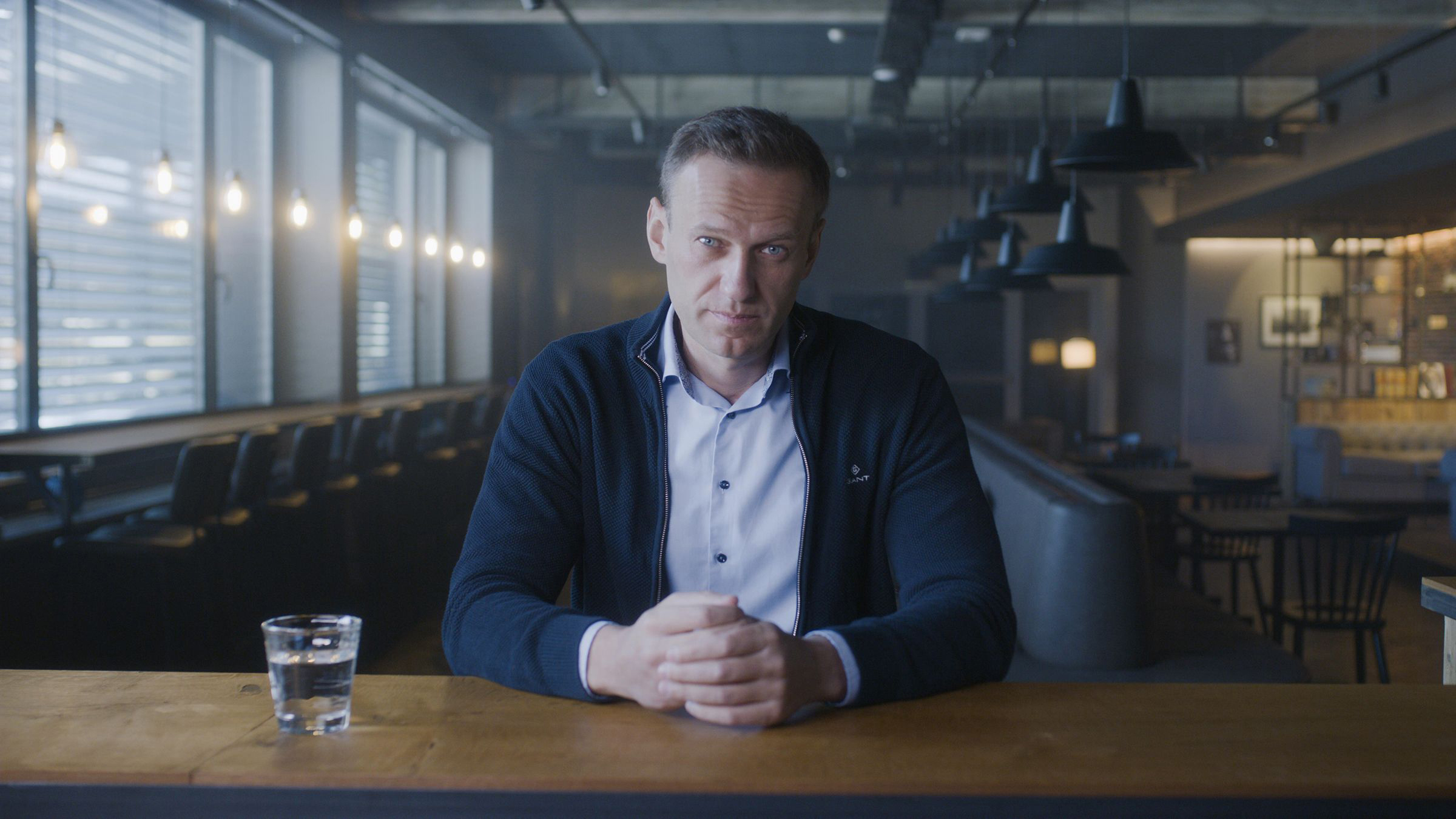Early in Daniel Roher’s alarming and essential documentary Navalny, Russian opposition leader Alexei Navalny sits in Germany, having recovered from being poisoned. Asked what message he might leave behind if killed, he resists and tells the director he’d rather have this film be a thriller, half-jokingly saying “If I die you can make a boring movie of remembrance.” The film is anything but––a living work of journalism made by CNN in secret, revealed as a mystery documentary premiere only after Sundance was underway this year. Putin and Sundance have a bit of history: in 2017 hackers briefly took down the festival’s box office after the premiere of the doping-scandal documentary Icarus. Thankfully no such issues were reported this year.
Similar to Laura Poitras’ Citizenfour, Navalny is a living document as Navalny and his publicist team up with Bulgarian investigative journalist Christo Grozev to piece together the mystery of his 2020 poisoning. Navalny is a Putin opposition leader who galvanized a wide coalition, including some with which other politicians would be uncomfortable. He dreams of a decentralized Russia where local governments return to what he calls the “primitive politics” of human rights and free speech. His media team, including publicist Maria and chief of staff Leonid, have taken their case to platforms like YouTube and TikTok in short videos and longer-form reports with titles like “Putin’s Place: A History of the World’s Biggest Bribes.”
Bucking the kleptocracy, Navalny has been the subject of several films including indirectly the youth documentary We Are Russia, currently on the festival circuit. That film mostly concerns Navalny’s impact on a generation of protestors under a government that heavily controls protest. They struggle to change hearts and minds in a nation where Putin is popular and the sentiment is “they’re all crooks.”
With CNN’s resources Roher has created a documentary that is both an active record and testament to democracy. The arrest, attacks, and attempted murder of Navalny is shocking—Putin attempts to do so in the cleanest way possible, with a revolutionary nerve agent, rather than in a public fashion. Despite such pressure, Navalny continues out of patriotic duty, including daughter Dasha (a college student in the US) and wife Yulia in the fight when could have very easily remained in asylum in Europe. Roher captures a critical moment in the investigation on the part of Amsterdam-based group Bellingcat that is well worth the price of admission, one that leads to additional reporting by CNN’s Clarissa Ward about suspects involved in the poisoning.
Shedding light on Putin’s tactic is essential, and here Roher creates an intimate portrait of Navalny, his family, his team, and Grozev, who carry on the vital work that a free press ought to carry out. Initially Grozev doubts his ability to report on Russia from Germany, but the crowdsource work of Bellingcat’s data journalists help narrow down a list of suspects in a series of moments that feel like something out of a cyber thriller.
Roher resists urges to pump up any intensity of this drama despite the high stakes of Navalny’s work: the film remains grounded and focused on the process of doing the work and the personal stakes. He and the film resist a call to martyrdom; that would, after all, be a win for Putin and a public death may galvanize foreign forces. The geopolitical stakes are immense and Navalny is essential viewing, especially for any Western audience that may have not been following this story so closely.
Navalny premiered at the 2022 Sundance Film Festival and will be released by CNN and HBO Max.

